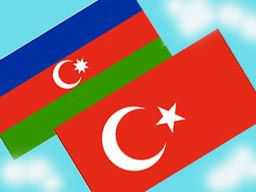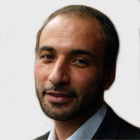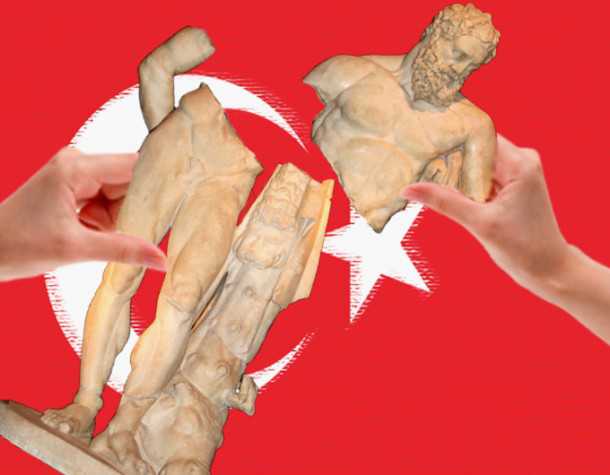By Soner Cagaptay and Ata Akiner
July 29, 2009
Intent on resolving its ongoing Kurdish problem, Turkey launched a peace initiative last spring that includes measures to disarm the Kurdistan Workers Party (PKK), a group listed by the State Department as a foreign terrorist organization. But does the PKK want peace? The following statements by top PKK leaders provide insight into the group’s intentions, the prospects for peace, and the implications for the United States.
On Violence and Peace
• “Some intellectuals and writers are renewing calls for the disarmament of the PKK and pulling it outside Turkey’s borders. But what they do not understand is that the most that can happen is a ceasefire, and for a ceasefire to take place, there must be the desire to do so.”
— Abdullah Ocalan, founder and leader of the PKK, currently imprisoned in Turkey, January 4, 2009
• “If a solution does not develop, I will withdraw myself from the process. In a month or month and a half, things might take a different direction. Until autumn, much might change. If a war breaks out, ‘Kurdistan’ will secede. We defend peace, and those who do not bring peace will be responsible. The Kurds cannot accept the status quo in Turkey. A war would cause both sides to lose, the people would lose. Afghanistan and Pakistan’s situation is clear, for example.”
— Abdullah Ocalan, July 17, 2009
• “On the other hand, surrendering weapons is not even a subject of discussion. The guerillas [his term for PKK members] will never surrender their weapons. Within a democratic system, guerillas would take up a position of responsibility and duty. This is because guerillas are the true defense forces of the Kurdish people. If the guerillas gave up their weapons, then we will go back to the situation thirty years ago, to the time before the PKK.”
“Without an indigenous defense — in other words, without the guerillas — the Kurdish people would surrender themselves to imperialists and murderers. The Kurdish people would, of course, never accept that.”
“If a general amnesty would include giving leader Apo [Abdullah Ocalan] his freedom, then the PKK might consider a ceasefire, like in 1999, but it will not give up its weapons.”
— Duran Kalkan, senior PKK leader, June 23, 2009
• “We always talk about the struggle for peace. The people are leading the fight for peace, they call for peace. Our stance has been and remains: ‘The road to peace goes through resistance in the mountains.’ Those who want to win peace must take to the mountains. I believe the situation is very clear. If there are peace talks now, this is only because there has been freedom fighting in the mountains, and they derive from the strength of the guerillas. Therefore, for peace to win, the guerilla forces must become even stronger.”
— Duran Kalkan, June 24, 2009
• “First off, such a thing as disarmament is meaningless. Instead of disarmament, we can talk of undertaking new duties. Within this framework, the reorganization of the guerillas can be kept on the agenda . . . [and] of course the Kurdish people will always need to be defended. In order to live free and democratically, to be organized, to ensure their survival, to look toward the future securely, they need their own defense forces. Without this, how can our community defend itself?”
— Duran Kalkan, March 18, 2009
• “Our people must prepare for 2009 as if it is going to be a year of war, and get ready for all out resistance against attacks meant to destroy and massacre them. Our people must build on their inherent defense knowledge and organization to prepare themselves.”
“We have never asked to be pardoned, and do not want to be either.”
— Feyman Huseyin (Bahoz Erdal), top military leader in the PKK, January 2, 2009
On What the PKK Wants
• “Either the Kurds will become independent or not live at all. This is the decision reached by the Kurdish people.”
— Cemal Bayik, senior PKK leader, June 18, 2009
• “So if there are Kurds and a Kurdish problem, then this is a problem on a societal level. It is now being said that this problem will be solved not at such a level but as an individual rights problem. Besides that, they say the PKK is a terrorist organization and must be eliminated by force. . . . this means war.”
— Murat Karayilan, acting leader of the PKK, June 8, 2009
On the U.S. and International Role
• “If the will of resistance of the Kurds is broken, Europe, Turkey, the United States, and Israel are waiting in ambush. They would finish us off.”
— Abdullah Ocalan, June 19, 2009
• “The United States and England are still trying to conduct politics over my back. They might bring more dangerous and effective leaders against us [Kurds]. The conspiracy continues, and this bothers me greatly.”
— Abdullah Ocalan, July 17, 2009
• “Capitalism has turned human beings into donkeys. . . . What about this system is defensible? The United States and Europe are those responsible for this order. They have caused a situation worse than the Greek occupation.”
— Abdullah Ocalan, July 10, 2009
• “If Turkey had realistic politicians, they would ask themselves and consider why the United States and France do not want a solution to the [Kurdish] problem. Instead, Turkish politicians think, ‘how nice, these countries are supporting us.’ They think that with the military, economic, and political support given to them they can dispatch the PKK. But I must respond to them that you cannot eliminate the PKK; this is impossible. . . . Those who support Turkey know very well that the PKK cannot be destroyed. Their goal is to ensure that the status quo remains, so that things remain unresolved. It is for this reason that they support Turkey.”
— Murat Karayilan, June 27, 2009
• “The Turkish government already has a joint political agenda with ‘Southern Kurdistan,’ the United States, and Iraq. Purportedly in the south there are currently efforts being made to make the PKK either lay down their arms or destroy them.”
— Cemal Bayik, June 19, 2009
• “We are doing everything we can in the name of dialogue and a peaceful resolution. But against us is an approach that does not accept peace for the Kurds. And the United States wants things to stay unresolved, to stay as they are. They are to blame for this.”
— Murat Karayilan, June 16, 2009
Policy Implications for the United States
The PKK’s anti-Americanism, an often overlooked phenomenon rooted in the group’s persistent communist pedigree, has led the PKK to ratchet up its rhetoric against the United States. Washington should continue to monitor the group, as the PKK’s anti-Americanism will only grow stronger given that the United States does not support its stance.
Ultimately, it is up to Turkey to decide how to deal with the PKK. Washington, however, might be well served to stay out of the current initiative. If the United States is seen as shepherding the process while PKK violence continues in the background, Turks may perceive — however falsely — that a U.S.-supported peace initiative is a sham. Washington should be careful not to take ownership of the current initiative to prevent the already debilitated U.S. image from being further damaged in Turkey.
=============================================================
Soner Cagaptay is a senior fellow and director of the Turkish Research Program at The Washington Institute. Ata Akiner is a research intern in that program.
============================================================== |
 Turkey’s diplomatic missions will provide services to Azeri citizens. Turkey’s Ambassador in Baku, Hulusi Kılıç, said that in countries where Azerbaijan has no diplomatic mission Azeri citizens could receive diplomatic services from Turkish missions. Elhan Poluhov, spokesman for the Azeri Foreign Ministry, said that Turkey’s friendly proposal for providing services to Azeri citizens was accepted by his ministry.
Turkey’s diplomatic missions will provide services to Azeri citizens. Turkey’s Ambassador in Baku, Hulusi Kılıç, said that in countries where Azerbaijan has no diplomatic mission Azeri citizens could receive diplomatic services from Turkish missions. Elhan Poluhov, spokesman for the Azeri Foreign Ministry, said that Turkey’s friendly proposal for providing services to Azeri citizens was accepted by his ministry.





